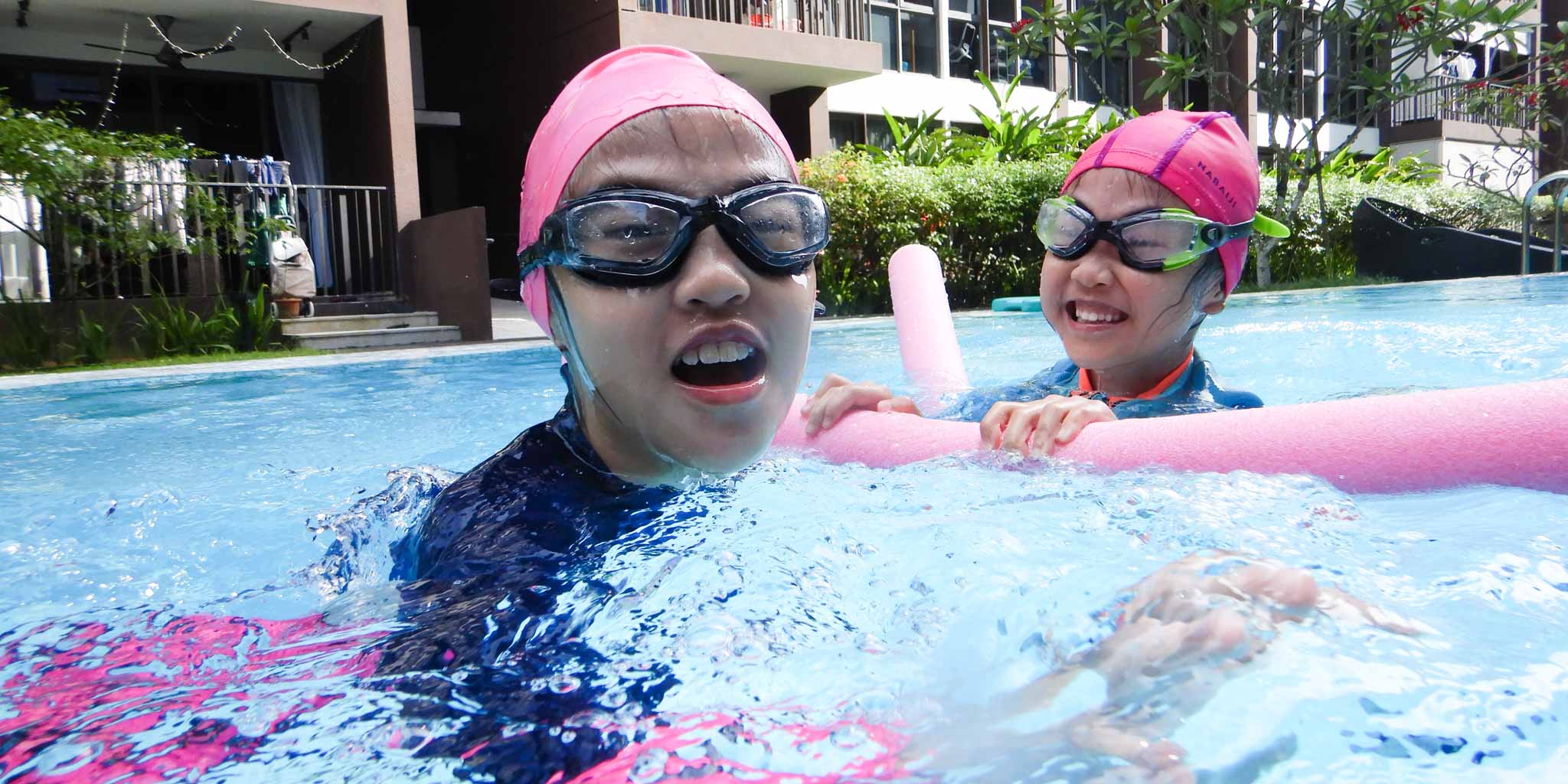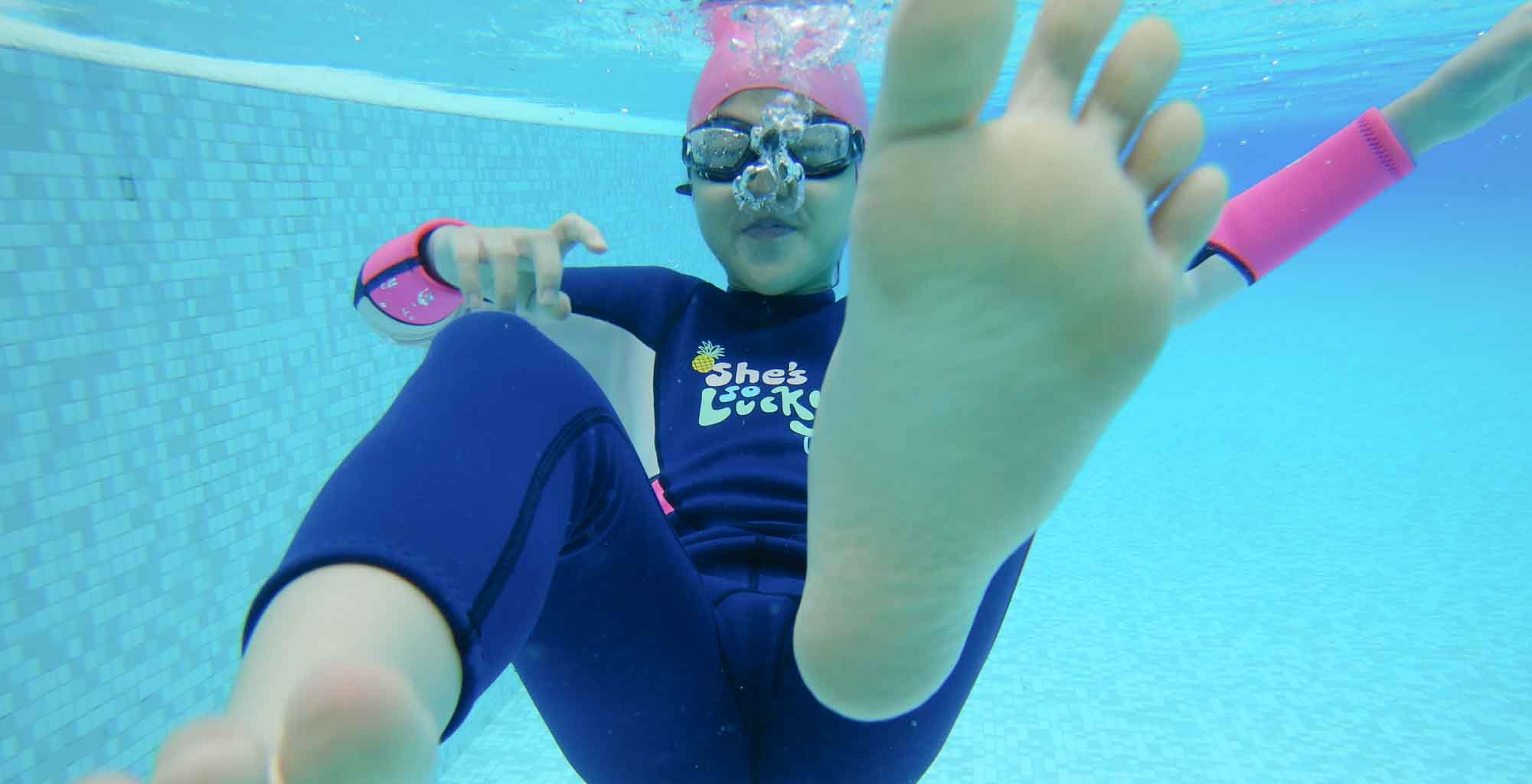16 Ways to Stay Motivated to Swim

Motivation, or the lack thereof, is frequently the breaking point in every fitness program. According to coaches, swimmers who consistently attend training are more likely to stay in the sport. Motivated swimmers find it simpler to go to the pool and, as a result, are more likely to achieve their goals. As a result, spend some time to consider what motivates you. What will keep you on track toward your ultimate goal? As you read through the list of motivators below, you will most likely find some that apply to you. Many motivators are beneficial byproducts of the sport that have evolved into the primary reasons swimmers return to the pool year after year. Read each one carefully, decide which ones relate to you, and take notes. Understanding what inspires your aids in the selection of appropriate goals.
Even if you do not feel like going to the pool, use these tactics proven effective by science to improve your motivation.
One of the most prevalent misconceptions about motivation is that you must first be inspired or struck by inspiration before taking action.
Fortunately and regrettably, things do not work out like that. In his book “Atomic Habits,” James Clear observes, “Motivation is often the result of action, not the cause of it.”
Numerous researchers have examined the behaviors that are particularly effective at keeping people motivated and committed to their workouts, which might help you stay committed to swimming.
Here are some more unexpected, fascinating, and helpful results.
1. Workout at the Same Time
Always Aiming to get to the pool “whenever” is likely to result in you getting to the pool “never.”
A 2021 study published in the journal Exercise and Sport Sciences Reviews discovered that people were more likely to exercise if they were regular about conducting their workouts at the same time of day, especially if that time was in the morning.
Working exercise at a constant time, according to the authors, can ease planning, promote habit development, and improve self-regulation (self-regulation, according to psychotherapist Andrea Bell, fundamentally means “control [of oneself], by oneself”).
If you always go to the pool at 6:30 a.m., you know which roads are the clearest, what to-go cup your coffee goes in, and what items and clothes you need for afterward—no recalculating or fresh thinking required. According to the report, habits require less purposeful motivation and cognitive resources from you in the present than not having habits does.
In other words, a habit can assist you in avoiding the quicksand of rethinking/overthinking.
Concerning the morning stuff. In general, planning facilitates workouts (“Planning is an effective time management and behavior change strategy that can help individuals exercise even when faced with time constraints and competing responsibilities,” according to the study), and mornings facilitate planning because fewer things, such as last-minute meetings, get in the way.
Also, as the day progresses, you may become less adept at self-regulation, and new priorities may emerge. That being said, congratulations if you are more effective with an evening workout habit. Maintain it.
2. Give Yourself a Gift
It would be ideal if the benefits of a workout were sufficient to entice us back to the pool when motivation faltered. Regardless of how good you feel after practice—whether it is because you genuinely reached for something, relaxed because you saw friends, or shared some laughs—it does not always draw you back in.
To conduct a rigorous study of behavior change, two researchers launched a “mega study” of over 60,000 members of the 24-Hour Fitness gym franchise. Those scientists? Influential transformation researcher Katy Milkman of the University of Pennsylvania’s Wharton School and author of “How to Change” and her Wharton colleague Angela Duckworth, whose book “Grit” sparked much discussion about passion and tenacity.
They and 30 scientists from 15 universities compared the benefits of more than 50 motivational programs to what happened when members did nothing in or out of the gym. According to a New York Times report on the study, the members who received the intervention enrolled in a program that gave new strategies to inspire themselves to exercise. Everyone was advised to schedule their workouts at a consistent time of day, received SMS to remind them of their intentions, and received $0.22 in reward points if they worked out. In addition, each participant received one of 52 different digital motivational programs, ranging from techniques to reframe exercise as fun to audiobooks.
According to The Times, what worked best in attracting individuals back to the gym shocked even the researchers. The approach that increased gym visits the most—by around 16%—rewarded users with the equivalent of $0.09 if they returned to the gym after missing a planned workout. (It is worth noting that providing folks the equivalent of $1.75 each time they worked out was not as successful. But it was close behind.)
Doing this yourself is a little tricky. You can try rewarding yourself for returning from a missed workout, but according to performance coach Michelle Cleere, “the effectiveness of extrinsic rewards like these wears off quickly, and once it is not there, the behavior generally goes away.” So, as Milkman told The New York Times, “Try not to miss more than one workout.”
3. Determine What You Like About It
Remembering why you enjoy swimming may motivate you to do it more often.
A small Norwegian study published in the Scandinavian Journal of Medicine and Science in Sports in 2020 investigated what would assist new exercisers keep attending the gym a year after they signed up. People with “autonomous” motives (you work out because you value what you get from it or it is an essential part of your identity) are more likely to exercise regularly than people with “controlled” motives (you work out because someone else wants you to) or internal pressure (you feel guilty). People who continued with exercise rated the reasons “enjoyment” and “challenge” as high in this study.
It can not hurt to develop a list of what you appreciate about swimming and what tasks you would like to take on in the coming week, month, or year.
4. Make Your Goals SMARTer
You can not talk about motivation without mentioning goal setting; it is the subject of every conversation about keeping New Year’s resolutions. They assist you in staying on track and continuing to exercise. “The problem with goal setting is that most people set themselves up for failure by setting goals that are too small, too large, or simply not specific enough,” Cleere adds.
“I want to get stronger,” you can not just say. You must set SMART objectives. While the words behind each acronym letter vary depending on who you ask, the American College of Sports Medicine defines them as Specific, Measurable, Attainable, Relevant, and Trackable (some places use “time-bound”).
According to Cleere, You will want a long-term goal and shorter-term SMART goals to assist you in getting there step by step. “Divide everything into particular tasks that you can work on.” You will see yourself getting there day by day.
If you are discouraged because you are not progressing toward your goal, consult a coach who can help you change the objective or your plan for reaching it.
5. Relax And Socialize
A nice cool-down may be beneficial to more than just your body.
In a small but widely cited study published in the Journal of Sport & Exercise Psychology, scientists from Duke University and Iowa State University had people do 15 minutes of exercise that either increased in intensity (to an unpleasant level) or decreased in power throughout the workout.
Previous research suggested that higher-intensity work is less pleasurable. Still, these researchers were also aware of behavioral economics research that found that the “slope of change” during an episode—whether it goes from pleasurable to not pleasurable or vice versa—influences how someone evaluates an experience after it is over.
Researchers used validated questionnaires after exercise to pose the following questions: “How do you feel right now about the physical activity you have been doing?”; “How did the laboratory exercise session make you feel?” ; and “How do you think the exercise session would make you feel if you repeated it?”
According to the study, “reducing intensity… improved postexercise pleasure and enjoyment, remembered pleasure, and forecasted pleasure.” So, if you want to come back tomorrow, the week after, and the week later, it might be advisable to listen to your instructors and avoid jumping out after the main set. That cool-down may be as beneficial to your next workout as it is to this one.
6. Fitness.
Swimming is a full-body, core-based exercise that can benefit any adult. It complements running and other weight-bearing activities by putting less strain on the joints and tendons, resulting in fewer injuries and more constant training. Fitness is perhaps the most important motivator for most masters swimmers. Swimmers frequently use specified, repeatable test sets to assess their fitness progress. Samples of these swims can be found in Chapter 10, Pool Workouts. These test sets, or benchmark sets, lend themselves well to goal setting.
7. Science.
If you are interested in exercise science, the swimming pool is an excellent laboratory. There are endless measurable components, such as your heart rate, split timings on the pace clock, strokes per length, and work-to-rest ratios. Swimmers interested in swimming science are attracted by fluid dynamics and the subject of what makes great swimmers fast.
8. Water.
Water represents something natural, relaxing, and aesthetically pleasing to many swimmers. When they were kids, their parents undoubtedly hauled them out of the pool after hours of play and had to limit their bath time. Water is just the location where certain individuals feel most at ease. Water’s buoyancy reduces body weight by 90%, making swimming appealing to people of all shapes and sizes. Water is an excellent equalizer.
9. Technique.
Swimmers are constantly working on improving their strokes and learning to swim more effectively. The mechanics of swimming give athletes an unlimited opportunity to perfect their actions, from the fundamentals to the finer elements, such as creating more force and lowering drag. Swimmers who want to improve their technique Never pass up an opportunity to attend a swim clinic or view a video of a champion swimmer. They are constantly willing to try new and odd stroke drills that the coach suggests. They are learning the art of swimming.
10. Overcoming Apprehension.
According to a Gallup study conducted in 1988, a large portion of the US population is uncomfortable in water. Stillwell (2007) found that 64 percent of respondents interviewed were uncomfortable in deep, open water, 46 percent were anxious in deep water in pools, and 39 percent were afraid to put their heads underwater. Many of these swimmers face their worries by enrolling in adult swim lessons or master’s swim programs. People can learn to swim with a calm stroke and adequate breathing with dedication and good coaching.
11. Competition.
Masters swimmers who are competitive will have plenty of possibilities. Master’s swim meetings, open water races, and triathlons are all available. There are also postal events, in which you swim in your own pool and transmit your results to an event organizer, who publishes a complete list of participants’ results. Swimmers who thrive on competition are urged to speak with a coach while developing their training plans to ensure that their efforts are correctly targeted to their events.
12. Rehabilitation.
After Injury. Many land-based athletes participate in master’s swimming programs to stay healthy while rehabilitating their knees, ankles, or feet. These athletes may never leave master swimming after discovering how well swimming complements their weight-bearing routines. Swimming is a fantastic approach for runners to develop and maintain upper-body and core strength, making them more injury resistant in all sports.
13. Weight Loss.
Swimming can burn as many calories as high-impact aerobics, trekking, and ice skating in one hour. Most master swimmers who combine consistent workouts with healthy diets lose weight because weight reduction is about burning more calories than one consumes.
14. Stress Reduction.
Many master swimmers who are highly motivated in their careers and families regard their pool time as full relaxation. Although some of them like competition, the vast majority have no plans to compete in the future. They share the capacity to leave their troubles behind when they enter the pool with elite swimmers.
15. Self-Esteem.
Building your fitness level and reaching your swimming objectives can boost your self-esteem and have an impact on many parts of your life, including your personal relationships and career. “Through age and experience, I have grown less competitive in the water, more confident, and committed to making a positive impact on people’s lives,” Jim says of his accomplishment in developing one of the largest senior swim programs in the country.
16. Friendship.
The team environment that defines structured swim sessions fosters a special affinity among its participants. Long-distance swimmers frequently make their closest friendships while swimming. Differences in work, social rank, and financial situation were obscured by the homogeneity of the swimsuit and goggles. A sense of connection and a culture of teamwork dominate in the pool. A triathlete practicing for the next local multisport event, a runner staying active while recovering from knee surgery, and a CEO of a major corporation looking for one hour of leisure in the day may all be in the same pool during any given session. The beauty of swimming in a planned training group is that as the session begins, all of the swimmers’ goals, ages, skills, and degrees of dedication mix together as a team. The swimmers get exactly what they desire out of the workout while also enjoying the group’s fellowship.


